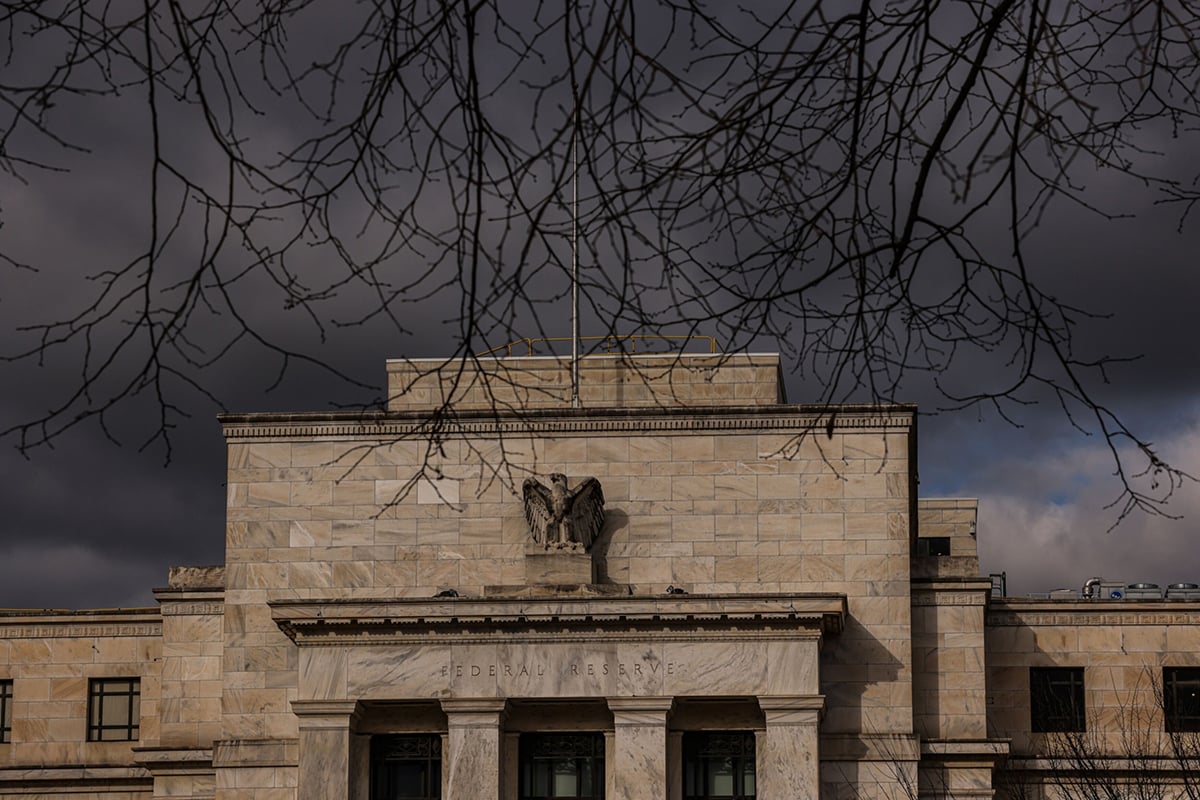U.S. mortgage rates are the lowest in at least four decades,with a 30-year fixed loan available at 4.09 percent. That didn'thelp Alexis Wolf buy a townhome in Beaverton, Oregon.
|“Unless you have family help, you're stuck renting,” said Wolf,26, a real estate broker who turned to relatives for a loan becauseshe didn't have the credit and employment history needed to qualifyfor a mortgage.
|Wolf's experience illustrates the predicament for FederalReserve policy makers as they end a two-day meeting today toconsider ways to boost economic growth. Low interest rates, thetraditional medicine for a flagging economy, aren't helpinghousing, which since 1982 has aided every recovery except thecurrent one.
|Sales of existing homes dropped in July to the lowest sinceNovember, and the median price slid 4.4 percent from a yearearlier. Rising foreclosures, tighter lending standards andunemployment stuck near 9 percent for more than two years are allweighing on the market. Lower borrowing costs aren't likely to makea difference, said housing economist Brad Hunter.
|“The Fed's actions probably won't help housing in a meaningfulway,” said Hunter, chief economist and national director ofconsulting at Metrostudy, a Houston-based housing research firmthat provides data to 18 of the 20 largest U.S. builders. “Thelevel of mortgage rates is not a major factor. Rates are atextremely attractive levels.”
|The Federal Open Market Committee may decide today to replaceshort-term Treasuries in its $1.65 trillion portfolio withlong-term bonds in a bid to lower rates for mortgages, auto andconsumer loans, according to 71 percent of 42 economists surveyedby Bloomberg News.
|
Excess Reserves
Economists at Goldman SachsGroup Inc. and JPMorgan Chase & Co. say policy makers may alsochoose to reduce the 0.25 percent interest rate paid on the excessreserves that banks hold at the Fed. The central bank is scheduledto issue its statement at about 2:15 p.m. in Washington.
The FOMC may say that while recent data are consistent with arebound forecast for the second half of 2011, the weak labor marketand high unemployment make more easing necessary, said Dean Maki,chief U.S. economist at Barclays Capital.
|“It is hard to argue that what is holding the recovery back isthe level of interest rates,” Maki said. “We have been through amassive boom-bust cycle in housing,” and working off excessinventory will “be a long, drawn-out process.”
|A rebound in housing is essential for restoring the net worth ofU.S. households, reviving consumer spending and strengthening therecovery, Harvard University economics professor Martin Feldsteinsaid in a Sept. 14 interview. Neither monetary policy nor PresidentBarack Obama's proposed $447 billion jobs program will provide afix, he said.
|
'Month After Month'
“The most important thingthat would stimulate households would be to go after the housingproblem,” said Feldstein, who served as chief economic adviser toPresident Ronald Reagan. “We still have house prices falling monthafter month on a seasonally adjusted basis, and something has to bedone to deal with that.”
Tougher lending standards imposed after the credit crisis areimpeding a recovery in housing more than the cost of borrowing,Hunter said.
|Commercial banks' real estate loans have fallen as supervisors,including the Fed, set rules aimed at preventing excessiverisk-taking and predatory lending. Those loans have dropped for 29consecutive months, according to Fed data.
|
Fighting Last War
“Regulators are still busyfighting the last war and demand that bankers be ultra cautiousabout lending,” said Charles Lieberman, chief investment officerwith Advisors Capital Management LLC in Hasbrouck Heights, NewJersey and a former head of monetary analysis at the FederalReserve Bank of New York.
The Fed has held the benchmark interest rate near zero sinceDecember 2008 and expanded the central bank's assets in July to arecord $2.88 trillion. The yield on the 10-year U.S. Treasury notehas declined to 1.94 percent from 4 percent in April 2010.
|Still, economic growth in the first six months of this year wasthe weakest since the recovery started in 2009. Gross domesticproduct expanded at a 1 percent annual rate in the second quarterafter 0.4 percent growth in the first three months of thisyear.
|The Fed, by announcing today the lengthening in the averageduration of bonds in its portfolio, would mimic a policy in 1961known as “Operation Twist” for its goal of bending the yield curve.Within the first month, the program may push down the yield on the10-year Treasury security by 0.15 percentage point, said ChrisRupkey, chief financial economist of Bank of Tokyo-Mitsubishi UFJLtd. in New York.
|
Sixties Version
“Operation Twist in the '60swasn't found to be a great success either,” said Robert Shiller, aneconomics professor at Yale University and co-creator of theS&P/Case-Shiller home-price index.
“Homeowners are relatively insensitive to mortgage rates whenthey are lacking confidence,” he said. “The dramatic thing that ishappening now is that their job isn't secure, if they even haveone.”
|Consumer confidence has fallen along with U.S. home values,which have declined by a third over the past five years, accordingto the S&P/Case-Shiller U.S. Home Price Index. In speculativemarkets like south Florida, home values have tumbled by half.During just the past 12 months, the value of real estate assets hasdeclined by $947 billion.
|
Consumer Confidence
Consumer confidence hasebbed to the second-lowest level of the year as the most householdsin three years said it is a bad time to spend. The BloombergConsumer Comfort Index was minus 49.3 in the period to Sept. 11,near this year's low of minus 49.4 reached in May.
“The essence of the problem is there's no confidence in what'snext with the economy,” Jeff Lazerson, president of Mortgage GraderInc., a mortgage broker based in Laguna Niguel, California, said ina telephone interview. “Borrowers are unemployed or worried aboutlosing their job. Even rich guys feel poor when the stock marketgoes down.”
|The Standard & Poor's 500 Index has lost 4.4 percent thisyear, closing yesterday at 1,202.09 in New York. Net worth forhouseholds and non-profit groups decreased by $149 billion in thesecond quarter, a 1 percent drop at an annual pace, to $58.5trillion, the Federal Reserve said Sept. 16.
|Wolf, the real estate broker and Oregon homebuyer, said a Fedprogram to push down interest rates probably wouldn't bring hermore business.
|“If they were even lower, I'm not sure people jump into themarket,” she said. “I don't think they're a function of holdingpeople back, like unemployment or uncertainty in the economy.”
|Bloomberg News
|Copyright 2018 Bloomberg. All rightsreserved. This material may not be published, broadcast, rewritten,or redistributed.
Complete your profile to continue reading and get FREE access to Treasury & Risk, part of your ALM digital membership.
Your access to unlimited Treasury & Risk content isn’t changing.
Once you are an ALM digital member, you’ll receive:
- Critical Treasury & Risk information including in-depth analysis of treasury and finance best practices, case studies with corporate innovators, informative newsletters, educational webcasts and videos, and resources from industry leaders.
- Exclusive discounts on ALM and Treasury & Risk events.
- Access to other award-winning ALM websites including PropertyCasualty360.com and Law.com.
*May exclude premium content
Already have an account? Sign In
© 2024 ALM Global, LLC, All Rights Reserved. Request academic re-use from www.copyright.com. All other uses, submit a request to [email protected]. For more information visit Asset & Logo Licensing.







